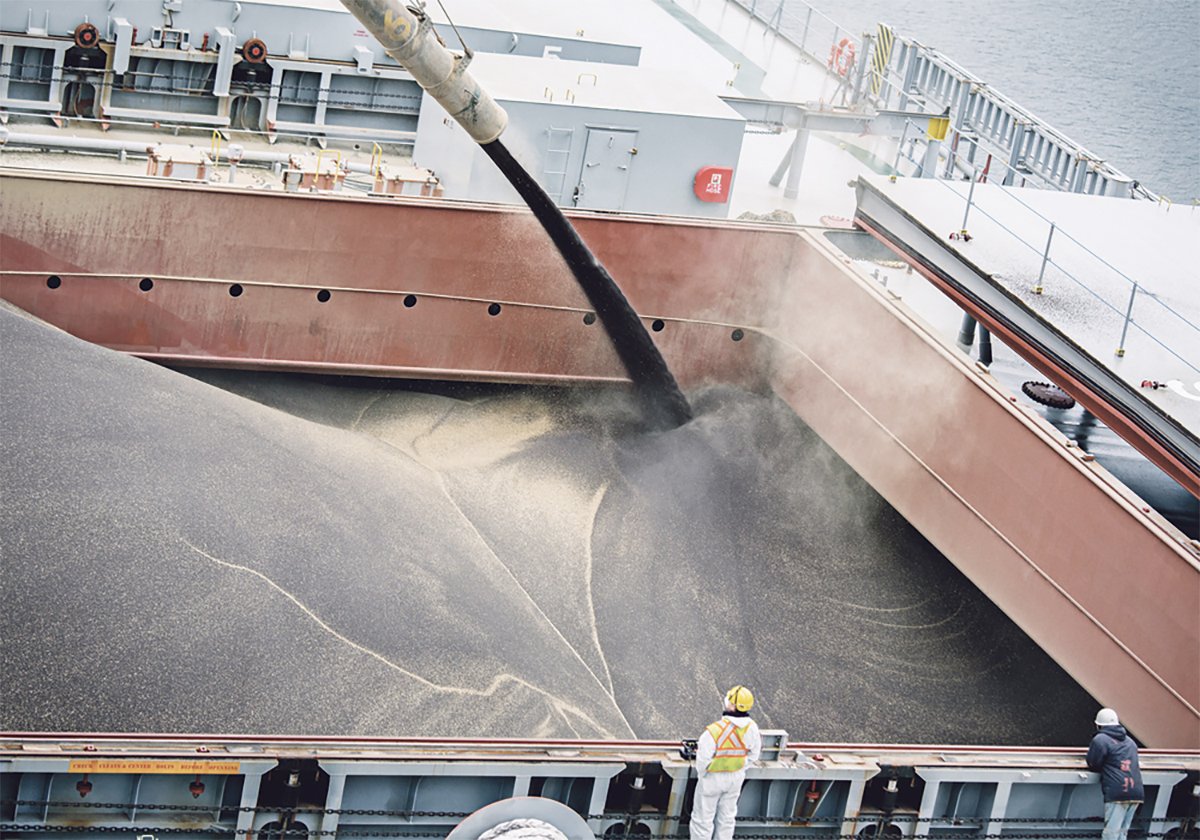Western Producer reporter Ed White covered the Canola Council of Canada convention in Halifax and filed these stories.
The Canola Council of Canada prides itself on the collegial feeling of its industry and the general air of goodwill that permeates its annual convention.
But as within any group, simmering tensions often underlie the bonhomie, and as the council set its strategic sights on 2015, some of the conflicting interests became visible.
Seed company and grain company officials complained about the variety registration process, claiming the system is holding back their ability to bring new “value” to canola.
Read Also

Exports off to a slow start after last year’s torrid pace
Canadian grain, oilseed and pulse exports are off to a slow start, but there are some bright spots, according to the Canadian Grain Commission’s most recent weekly export data report.
Weakening the regulatory controls in the variety registration system appears to be a major issue for non-farmer interests in the canola industry.
But to one farmer representative from Saskatchewan, it is the seed and grain companies that are holding back value from farmers through their stranglehold on variety commercialization. Farmers have funded research that has developed valuable traits that would help farmers across Western Canada, but they have had trouble enticing private interests to embrace them.
“We spend money developing these traits, then we can’t get the traits into the seed,” said Saskatchewan Canola Development Commission board member Wayne Bacon in an interview.
“It’s tough for growers to get these traits into the seed, because (the seed companies) don’t want to go there.”
Bacon said farmers and companies have fundamentally different interests and that is causing the snarls in variety development.
A private sector company is interested in its own profitability but not in the general good, so it is unlikely to support developments that benefit everyone equally. If it can’t gain a competitive advantage, it sees no benefit to the innovation.
But farmer-supported organizations like his want to take the results of their checkoff-funded research and provide them to all growers.
For a company to do better, it needs to squeeze a higher profit out of its products. If it can get an attractive new trait into a canola variety, it will try to increase the price of the variety to the grower, or to the end user. It won’t be focused on getting the price down, said Bacon.
But getting the price of the seed cheaper is exactly what farmers need, he said.
The conflicting interests of farmers and companies has led to farmer-based organizations developing traits they can’t get into canola varieties, and companies developing traits independently so that they don’t have to be constricted by farmers’ demands.
“If they get there first, they get the dollars out of it. If we get there first, we give it to the industry in general and all producers would benefit and keep costs down,” he said.
During a convention session, Bacon complained about the seed industry’s lack of support for farmer-driven trait development. Traits such as shatter resistance are being developed by farmer groups, but they can’t find a way to get their innovations into commercial seed.
Canola council president Barb Isman said she expected to see shatter resistance delivered by a seed company by 2010. And she said if farmers want to see their developments commercialized, they need to make alliances with seed companies. Commercial partnerships are essential in today’s canola industry.
“How effectively can little guys play in the world that we’re talking about? I don’t think you can play by yourself,” said Isman.
In the interview, Bacon said he understood that private interests need to make money in order to be willing to invest their money in incorporating new traits into canola varieties.
“If they can’t see a benefit at the end of the day, they won’t do it,” he acknowledged. “It costs a lot of dollars to put those traits in.”
But he said farmers won’t support of a seed industry that works exclusively for its own profitability and puts a hefty price tag on every development, while cutting farmers out of the economic gains.
“We want to benefit farmers by keeping costs down,” said Bacon.















